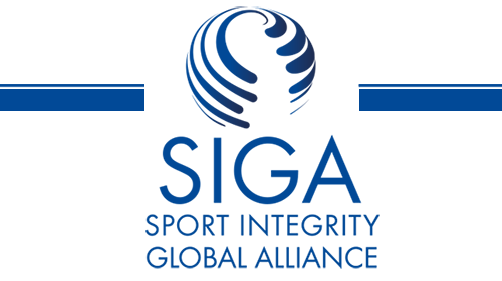By Paul Nicholson
October 7 – In what can be a positively perceived next step for an organisation still working through ways to define itself, the Sport Integrity Global Alliance (SIGA) has announced a set of Universal Standards that underpins its philosophy, perhaps the longest mission statement ever issued.
But while the ultimate formation and practical role of this fledgling alliance remains a work in progress, its ultimate goal and mission is very clear – to be part of the vanguard of change that sport globally needs to embrace. In other words to fight corrupt practices and facilitate higher standards of sports governance and integrity.
What does that mean?
SIGA’s Universal Standards just drafted cover three areas: good governance in sporting organisations, financial integrity, and sports betting integrity.
The standards cover issues like the requirement to develop anti-bribery and corruption practices under the governance pillar, to the publishing of financial information under the financial integrity recommendations, and the need to criminalise match manipulation and betting fraud.
The Universal Standards were emphasised as being a “living document that will evolve over time”, said Simon Greenburg, head of Dow Jones Sport who hosted the launch.
Emanuel Madeiros, CEO, ICSS Europe and Latin America, and the Coordinator of SIGA’s Ad interim Council, said: “The aim is to shape the way for the future of sport. Not just to prevent reputational damage. We bring a new strategic approach, an independent, neutral, multi-stakeholder global approach. We all have responsibility…we are bringing a new language, a constructive language.”
It certainly is a new language and it is at times difficult to understand. What isn’t difficult to understand is that this is a group that has rapidly grown to 70-plus supporters and organisations including sports federations, government bodies, commercial organisations and even sponsors.
These are stakeholders who want to help facilitate change but, importantly, emphasise that they do not see themselves as regulators of integrity.
“SIGA isn’t nor ever will be a new WADA,” said Greenberg, “it should not be seen as a threat to anyone.”
Except perhaps corrupt sports organisations that are unwilling to adopt to higher principles and standards of behaviour. The integrity area in sport is a huge space with plenty of room to build a castle.
The Universal Standards is the result of “significant research and expert consultation. They reflect and embrace existing international benchmarks and evolving best practices already implemented by a range of relevant bodies in and around sport,” said a SIGA statement.
Sports organisations signing up to the standards will follow a pathway through bronze, silver and gold levels reflecting good, better and best practice. “Participating organisations will be monitored against the Universal Standards,” said SIGA.
This need not be a challenge to national associations in football in particular but could prove a major resource. James ‘Chip’ Cottrell, a partner at Deloittes, a SIGA supporter said: “Education is the single most important barrier to get over.”
That statement on its own makes the case for SIGA.
Contact the writer of this story at moc.l1743749535labto1743749535ofdlr1743749535owedi1743749535sni@n1743749535osloh1743749535cin.l1743749535uap1743749535

